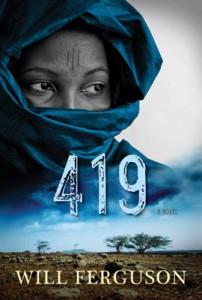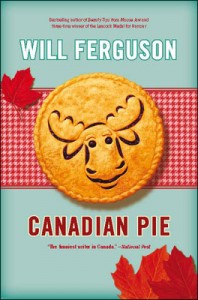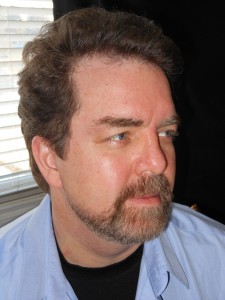 Timing is everything.
Timing is everything.
When Will Ferguson agreed last summer to be guest author for the fall 2012 session of my University of Toronto online course Memories into Story: Introduction to Life Writing, his novel 419 (Viking Canada/Penguin Canada, 2012) had not yet been longlisted for the national Scotiabank Giller Prize. The list was unveiled just days before the course began, and over the next couple of months, my students and I watched in anticipation as 419 jumped to the shortlist, and finally, at the televised black-tie gala on October 30, took the prize.
The Scotiabank Giller Prize, one of the country’s most eagerly followed annual literary events, awards $50,000 to the author of the best Canadian novel or short story collection published in English, and $5,000 to each finalist. (The 2012 finalists were Alix Ohlin for Inside, Nancy Richler for The Imposter Bride, Russell Wangersky for Whirl Away, and Kim Thúy for Ru.)
 But Will Ferguson is also widely known for his creative nonfiction, including travel memoirs, personal essays, and humour. What follows is an edited version of my class’s online interview with him based in part on excerpts they read from Canadian Pie (Penguin Canada, 2011), his lighthearted but thought-provoking personal essay collection on things Canadian.
But Will Ferguson is also widely known for his creative nonfiction, including travel memoirs, personal essays, and humour. What follows is an edited version of my class’s online interview with him based in part on excerpts they read from Canadian Pie (Penguin Canada, 2011), his lighthearted but thought-provoking personal essay collection on things Canadian.
Congratulations, Will, on winning the Giller. And thank you, students, for enthusiastically welcoming Will as our guest and asking the questions that prompted these revealing and helpful responses.
§ § §
“The material is all around us. It’s how we use it that matters.”
~ Will Ferguson
In your interview for the Giller Prize awards ceremony, you said, “Oddly enough, travel writing leads very naturally into literary fiction. The two of them really work together. You have a protagonist, you have a journey built right in, you try to reveal characters through dialogue, you try to evoke a place through description rather than just giving a tally.” Which do you most enjoy writing, travel memoirs or literary fiction? And why?
I like travel writing because it gets me out of the house. I like fiction because it allows my imagination to run free. I’ve always said that although they share many traits, travel writing and fiction are like two different styles of sculpture. Travel memoirs are like sculpting in marble — you take a huge block of experience and cut it down. It’s the art of subtraction. Fiction, on the other hand, is like working with clay. You build UP from a single image, a moment, even a scent in the case of Proust. It’s the art of addition.
I enjoyed reading your short memoir “Father’s Day and the Brothers Hardy,” about father and son and their nightly story time. How much did you dramatize this real-life story in order to reach the reader?
Oh, it’s all real — in the sense that the events depicted all happened. What I bring to it is my own response, my own interpretation. It’s a subjective retelling of actual events. A different dad might have taken very different lessons from his visit to the [Calgary] Stampede. I chose to home in on the calf-roping and the trust my son put in my ability to stop the pain of the “little cows.” I could easily have followed a different through-line and, using the same experiences, come up with an entirely different essay. The material is all around us. It’s how we use it that matters.
Are the other two excerpts we read, set in Old Quebec and Prince Edward Island, wholly memoir or partly fictional?
Again, it’s all real. I don’t believe in passing off fiction as memoir. Or memoir as fiction for that matter. That said, when I write travel memoirs I do juggle the chronology all the time. For example, in Beyond Belfast, I walked for weeks without having an interesting encounter. Then, suddenly, between Derry and Sion Mills I had one funny run-in after another. Rather than load these up, I spaced them apart in the book. I streamline the timeline as well. Memoir is NOT a tally of every damn thing that happened. It’s one person’s recollection of the “good parts.”
Have you ever worried about writing about your sons and putting their lives into the public sphere — particularly when they were too young to object to having stories written about them?
My kids are actually quite thrilled to appear in my books. If anything, they would like me to write about them more. I never write anything that is deeply personal to them, however. If you read passages that feature my kids, you’ll see it’s mainly my reactions that are sad or odd or weird. The kids themselves come across as sweet and thoughtful, which they are.
I am amazed by the detail you are able to recollect in your writing, particularly in conversations. Do you keep a journal? Do you have an elephant-like memory? Or are these recollections your best guess at what was actually said?
 I have a micro-tape-recorder on hand whenever I travel to record my impressions, snippets of conversation, which I then have transcribed for me when I get home. I also carry a notepad everywhere and will jot things down surreptitiously, as soon as I can sneak away. I only record the good parts, the key elements, the funny or interesting bits. If you transcribed entire conversations it would be very repetitive and drawn out. I find a lot of authors let the people in their memoirs prattle on far too long in the name of “authenticity.” Along the lines of “Dave. How are you?” I asked. “Not bad,” he said. “Could be better. And you?” I told him I was fine, and asked him to have a seat. “Thanks,” he muttered as he sat down. “Shall we order?” AAARRGH! I want to shout at these authors, Edit the conversation! Cut to the chase!
I have a micro-tape-recorder on hand whenever I travel to record my impressions, snippets of conversation, which I then have transcribed for me when I get home. I also carry a notepad everywhere and will jot things down surreptitiously, as soon as I can sneak away. I only record the good parts, the key elements, the funny or interesting bits. If you transcribed entire conversations it would be very repetitive and drawn out. I find a lot of authors let the people in their memoirs prattle on far too long in the name of “authenticity.” Along the lines of “Dave. How are you?” I asked. “Not bad,” he said. “Could be better. And you?” I told him I was fine, and asked him to have a seat. “Thanks,” he muttered as he sat down. “Shall we order?” AAARRGH! I want to shout at these authors, Edit the conversation! Cut to the chase!
Your opening for “Love and Loss in Old Quebec” is impossible to walk away from — so visual, so easy to connect with: “We move through life trailing former selves behind us like images in a multiple-exposure photograph.” We have discussed in class the importance of opening lines. In your writing process, do you have to have your first sentence (or an early version of it) in your head before you can begin to write?
I try to start strong, with an intriguing opening statement, one that makes readers pause and think. The first line of Spanish Fly was “Sometimes I think maybe Columbus was wrong, maybe the world really is flat.” For Hitching Rides with Buddha it was “Cape Sata is the end of Japan.” And for 419, “Would you die for your child?” With travel memoir, I try to avoid lengthy descriptions at the start that load up proper nouns and too many adjectives — especially colours, which aren’t really adjectives but filler. Along the lines of: “The bright blue waters of San Corinz Bay glittered in the sunlight as I made my way along the narrow tan cobblestone streets of the Grande Allee’s famed Latin Quarter, Italy’s premier. . . zzzzzzz.” So my advice is, start clean, start strong. Avoid long descriptive passages. Work the descriptive passages and backstory in later, once you have the reader snagged.
In your essay “The Kingdom of Anne” you wrote, “The real became mingled with the imaginary, and no one seemed to know exactly where one ended and the other began, least of all the author….” In the three essays we read, you also connect the real, or recent past, with the distant past. At the same time, you educate the reader about historical events and connect them to your life. How do you create these transitions?
When I’m juggling storylines, whether in memoir or fiction, I outline and write the different storylines separately and then “shuffle the deck” so to speak.
With memoir, I always start by writing the personal, first-person, first-hand account and then go back to look for ways to incorporate background details such as history. It saves a lot of time because then you know what you’re looking for. For example, the theme that emerged when I was writing about my experiences in PEI was the oftentimes poignant gap between the ideal and the real. So when I added the historic context, I chose excerpts from L.M.M. that fit my theme. If the heart of the essay were, say, nature and Canadian literature, I would have chosen very different passages to insert.
How did you find your writing voice? And what is the role of your editor in that process?
Everyone has a unique voice, but not everyone writes in it. Often they are trying to conform with what they think a writer should sound like. Editors shouldn’t interfere with voice, but they can certainly help uncover it. (I rely on my editors more for clarity and structure. That is, to answer the question, Is what I’m saying making sense? They provide fresh eyes.)
How can an emerging writer gain confidence?
Confidence isn’t important. Perseverance is. Don’t write as though there is someone hanging over your shoulder shaking his or her head at what you’re writing. Just write. If you write regularly, even ten minutes a day, writing will become a habit and the confidence will take care of itself.
What advice would you offer to a writer who has completed a story and wants to see it published?
You need to provide a publisher with the answers to three basic questions: Why this? Why now? And Why you?
Why this? — The subject matter has to be interesting. That goes without saying.
Why now? — This is actually the easiest one to pitch. You have to show that it is topical. If there are lots of other articles or books on the same subject, you tell the publisher, “See! It’s a trend.” You then have to show that yours offers a new angle on a popular subject. If there are NOT a lot of books or articles on this topic you say, “See! This is an area that no one has covered. There is a demand that’s not being met!”
Why you? — This can be the hardest. The subject may be interesting and topical, but why should you be the one to write it? The advantage of memoir and travel writing is that it answers that question right up front. Why you? Because it’s your story, your travels, that’s why.
Has there ever been a moment in your career when you thought you couldn’t or didn’t want to write anymore?
Almost every morning. Writing is a long, solitary endeavour. That said, not writing takes up more energy than writing. Telling yourself you’re too busy, not ready, the mental gymnastics needed to justify avoiding the work at hand — at a certain point it is easier to just sit down and write the damn thing.
§ § §

Will Ferguson toasts “the written word” after winning the 2012 Scotiabank Giller Prize (Photo: Frank Gunn, The Canadian Press)
WILL FERGUSON is the author of fourteen books, ranging from literary fiction to memoir to humour to popular history. His novel 419 won the national 2012 Scotiabank Giller Prize. Ferguson has hitchhiked the length of Japan and walked across Northern Ireland in the rain. A former columnist for Maclean’s and a three-time winner of the Leacock Medal for Humour, he has seen his books sold into 21 languages. He has also written for The New York Times, Esquire UK, The Walrus, and The Globe & Mail. Ferguson received the Pierre Berton Award from Canada’s National History Society and was nominated for the IMPAC Dublin Award for his novel Spanish Fly. He lives in Calgary with his wife and their two sons.
I have always been a writer. When I was a kid it was more diary-writing and later poetry and children’s stories. Now I am a minister and have fun writing sermons. Yeah, it’s fun.
The thing Will said which meant the most to me was “persevere” and never write with the feeling that someone is looking over your shoulder ready to correct what you are doing.
I am going to write every day from now on.
I agree with (Marion) very much. I think the heart of it, is that his heart is in it. It is very apparent. ..The observation Will made, right at the end of the interview; that if you can work through the seeming doubt(s) and the inner protestations that ring loud in the brain–and you express in some form instead,,.. it is going to result in a contribution that is at the least of it, a part of the (mysterious) picture.. Very best wishes to you W.F.